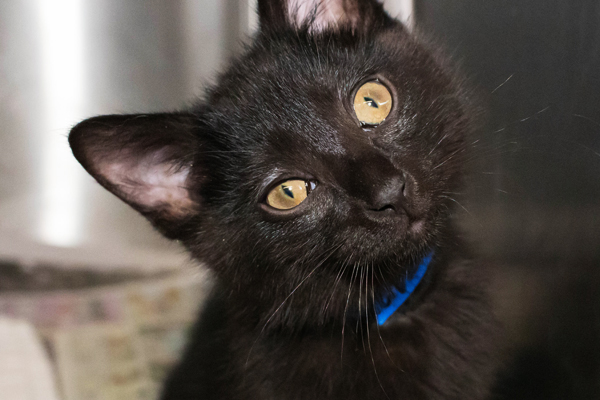Fostering Ringworm-Positive Pets
Jul 08, 2021

Ah, ringworm – its reputation precedes it. Ringworm’s a contagious fungal infection that’s commonly found in rescue animals. Because of its highly contagious nature, PAWS relies on foster families to limit the spread and make the healing process more comfortable for infected animals. We understand that fostering an animal with ringworm can sound like quite the undertaking, so we wanted to dispel some common myths. Who knows? Your next foster might just be a ringworm-positive pet!
Myth 1: Ringworm is a parasite.
If visions of squirming insects dance in your head when you hear the word “ringworm,” rest assured! Despite the name, ringworm isn’t parasitic. Rather, it’s a fungal infection that’s named because of the round, ring-shaped sites it typically causes on skin. In pets, ringworm infection can look like a small, missing patch of fur or flaky area of skin. In humans, ringworm presents as red ring-shaped rashes.
Myth 2: Ringworm is dangerous.
While ringworm’s nuisance, it typically doesn’t cause anything more than some itching and discomfort. If your ringworm-positive foster pet begins to scratch, we can provide a topical treatment to help them heal more comfortably.
Myth 3: Ringworm is hard to treat.
Yes and no. Typically, ringworm affects kittens and puppies whose immune systems aren’t quite as developed or sick animals who are more susceptible to infection. Depending on the severity of the ringworm case and the health of a pet’s immune system, ringworm can take anywhere from a few weeks to a few months to heal. Luckily, treatment’s fast and easy! Ringworm fosters should expect to provide a combination or topical treatments (like a lime sulfur dip) and oral medication. All-in-all, treatment for ringworm should take less than 1% of the time spent fostering your pet!
Perhaps the number one question on your mind….Does ringworm pass from pets to people?
A: Dogs and cats, especially kittens or puppies, can have ringworm that can be passed to people. However, healthy adults are usually resistant to infection unless there is a break in the skin such as a scratch. Wear gloves when handling pets with ringworm and wash hands thoroughly afterwards. Eliminating environmental contamination with thorough cleaning of the pet’s bedding, for instance, also helps limit the spread.
So, feel ready to foster a ringworm-positive pal? Head over to pawschicago.org/foster to apply to foster and meet some of the animals looking for a temporary home!
